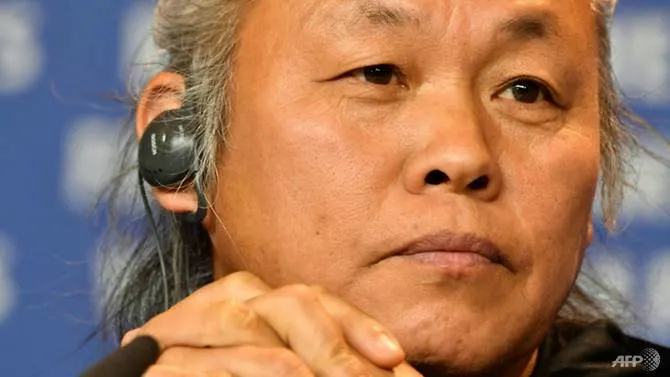COVID-19 claims controversial Korean film director Kim Ki-duk
12 December, 2020

Acclaimed South Korean film director Kim Ki-duk, who won global recognition for his violent works and faced allegations of abusing his actresses, died from coronavirus on Latvia on Friday (Dec 11), the country's leading film official said.
"Unfortunately, the sad news about Kim Ki-duk's death from coronavirus found in Latvia holds true," Dita Rietuma, brain of the National Film Centre of Latvia, told AFP.
"It is known from his contact individuals that he died found in a hospital found in Riga around 1:30 a good.m. earlier today," she added.
The Korean director, whose works enjoyed huge acclaim at European film festivals where he scooped many awards, died only nine days shy of his 60th birthday.
According to Rietuma, this individual was on an exclusive go to to Latvia and had not been planning any filming.
Native media reported that the director was likely to buy a house and apply for residence on the Baltic eurozone state.
Artur Veeber, an Estonia-based producer, said both worked collectively on a fresh project and Kim was expected back Estonia found in mid-December for a good retrospective express marking his birthday.
"Yesterday I learnt that the problem was critical," Veeber told AFP, referring to Kim's condition.
Reached simply by AFP, Kim's translator Darya Krutova said she'd not comment based on the desires of the director's girl.
Kim won global fame along with his bold portrayal of extreme violence and human brutality in allegory-rich videos, but was accused of misconduct against actresses.
The director hadn't taken care of immediately these allegations.
But in the last few years he trained his sights on the subject of Russia and other post-Soviet countries where he done new projects.
He presided above the primary jury of the Moscow International Film Festival this past year and shot his last movie, "Dissolve", in Kazakhstan.
Prominent Russian film critic Andrei Plakhov stated that the "enfant terrible" of Asian art-house cinema was valued in Russia for his "passion and devil-may-care attitude."
"NO TABOOS"
His videos - many featuring gruesome violence against both males and females, and rapes of girls - divided viewers, with some accusing him of misogyny and others hailing his cinematography and unflinching portrayal of a social underclass almost never seen in other films.
Laced with this kind of trademark violence, his film "Pieta" gained the Golden Lion prize by the Venice Film Event in 2012.
He directed a lot more than 20 movies including "Spring, Summer months, Fall, Winter... and Planting season" - an uncharacteristically serene film discovering the cycle of life through a Buddhist monk's existence.
"Kim's films are contemporary myths," Plakhov wrote for Kommersant broadsheet. "There's always temptation and redemption. And addititionally there is God viewing the individual tragicomedy."
Another prominent Russian critic, Anton Dolin, writing for Meduza news portal, said that for Europe and america Kim had end up being the embodiment of "Asian extreme."
State Russian television set hailed Kim, saying "there were zero taboos for him found in his study of man nature."
Source:
TAG(s):
